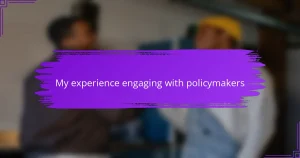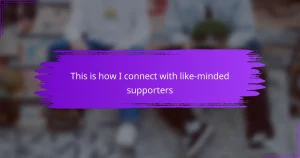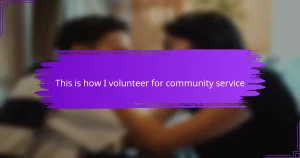Key takeaways
- Obama supporter communities foster connections through shared values, inspiring individual involvement and lifelong friendships.
- Collective action amplifies personal voices, creating a powerful environment for political engagement and emotional support.
- Engaging group activities and personal storytelling enhance participation and build stronger bonds among supporters.
- Regular check-ins and celebrating small wins help maintain long-term commitment and a sense of community among members.
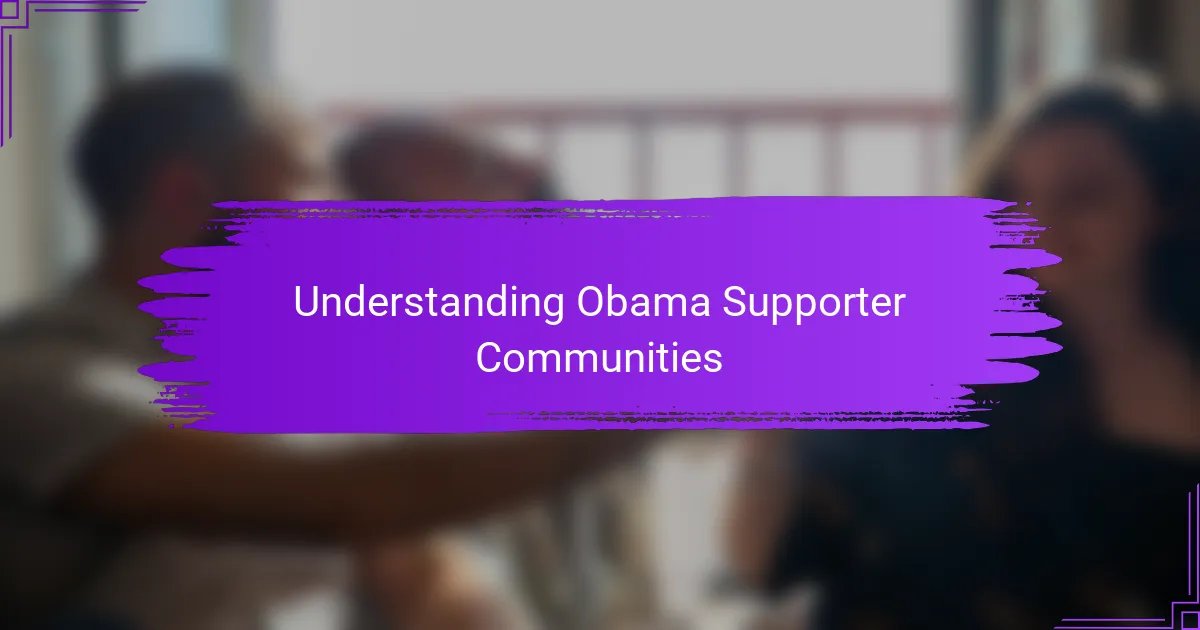
Understanding Obama Supporter Communities
Obama supporter communities are vibrant spaces where people come together, united by shared values like hope, change, and equality. From my experience, these groups aren’t just about politics—they’re about building connections that inspire and empower.
I remember joining one such community and feeling an immediate sense of belonging. It made me wonder, what is it about this collective passion that transforms casual interest into genuine involvement?
Isn’t it fascinating how these communities create a ripple effect, motivating each member to take action and bring others along? That shared enthusiasm fuels not only campaigns but lifelong friendships grounded in commitment and belief.
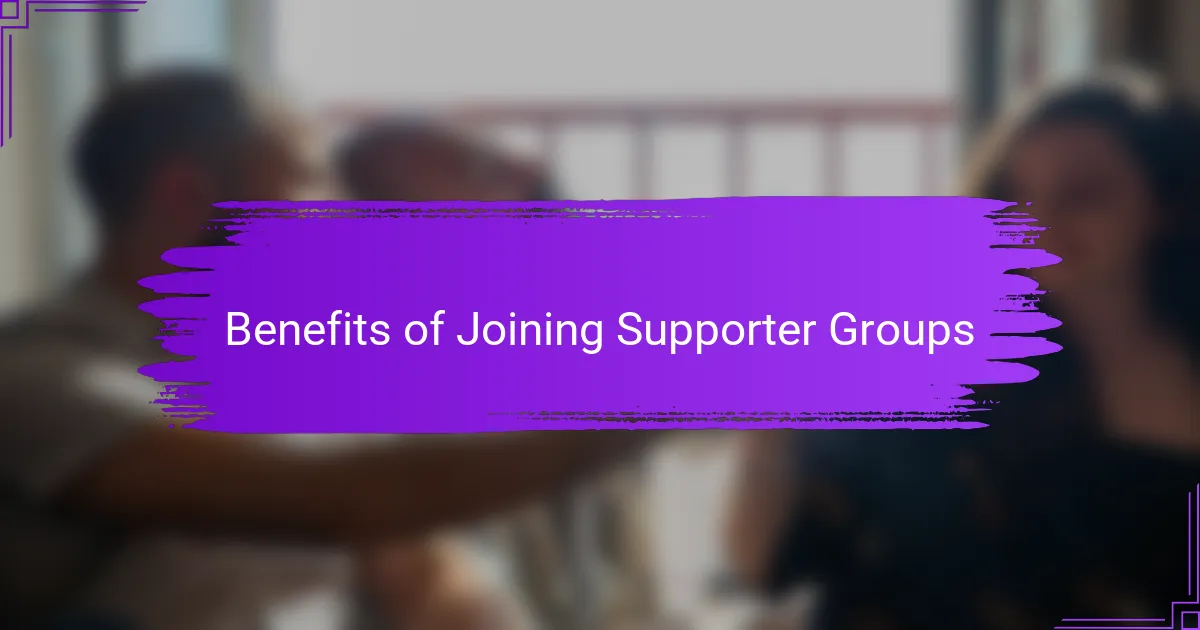
Benefits of Joining Supporter Groups
One of the biggest benefits I found in joining an Obama supporter group is the encouragement to stay informed and active. Being surrounded by people who care deeply pushes me to learn more and participate in meaningful ways. Have you ever noticed how being part of a passionate community makes you feel more accountable to your own beliefs?
Another thing that stands out to me is the sense of empowerment that comes from collective action. When we rally together, supporting causes and organizing events, it’s like our individual voices get amplified into a powerful chorus. I’ve felt this energy firsthand, and it’s honestly one of the most motivating experiences I’ve had in any political setting.
Beyond that, these groups often become genuine support networks. It’s not just about politics—it’s about sharing hopes, challenges, and sometimes even day-to-day struggles. That emotional connection reminds me that I’m not alone, and that shared purpose can turn strangers into lifelong friends. Don’t you think that kind of bond is priceless?
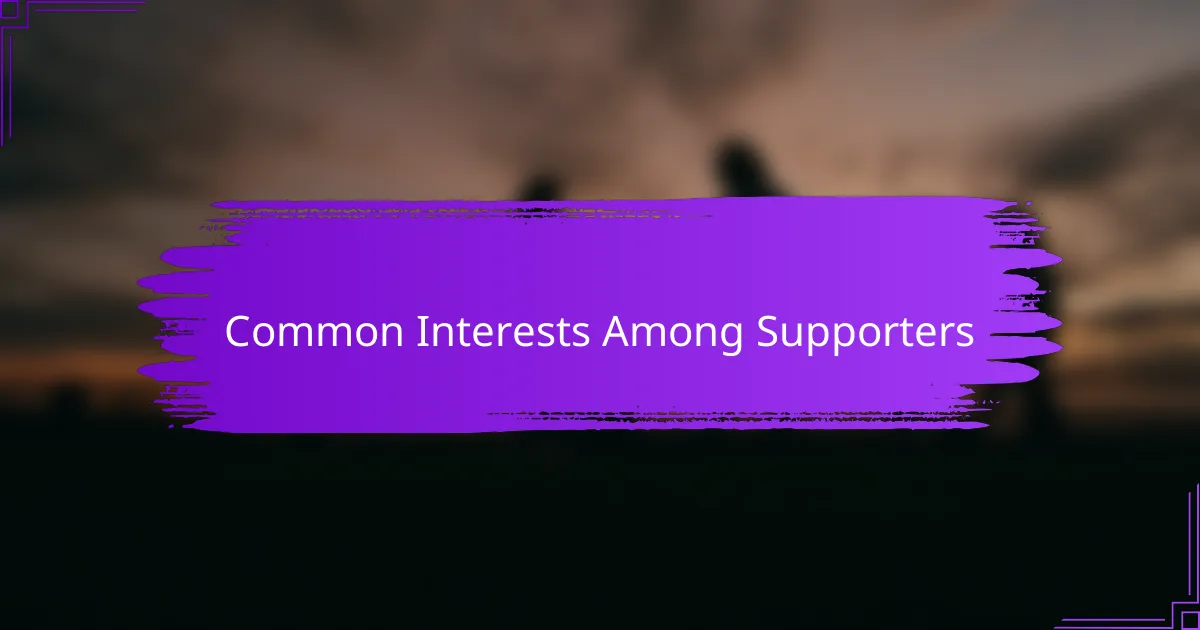
Common Interests Among Supporters
It’s interesting how many Obama supporters I meet share a deep commitment to social justice and community service. I often find that this shared passion creates instant connections, making conversations flow naturally. Have you ever noticed how talking about these common causes feels like finding a new friend who truly gets you?
I’ve also seen how supporters bond over a belief in positive change and optimism for the future. In one group meeting, someone’s hopeful vision sparked an entire discussion about turning ideas into action. That kind of energy is contagious—it makes you want to roll up your sleeves and join in.
What really stands out to me is how these common interests go beyond politics, weaving into daily life and personal values. Supporting policies that promote equality, for example, often aligns with how we treat people in our own circles. It’s as if our commitment to fairness becomes a shared language, connecting us on a deeper level.
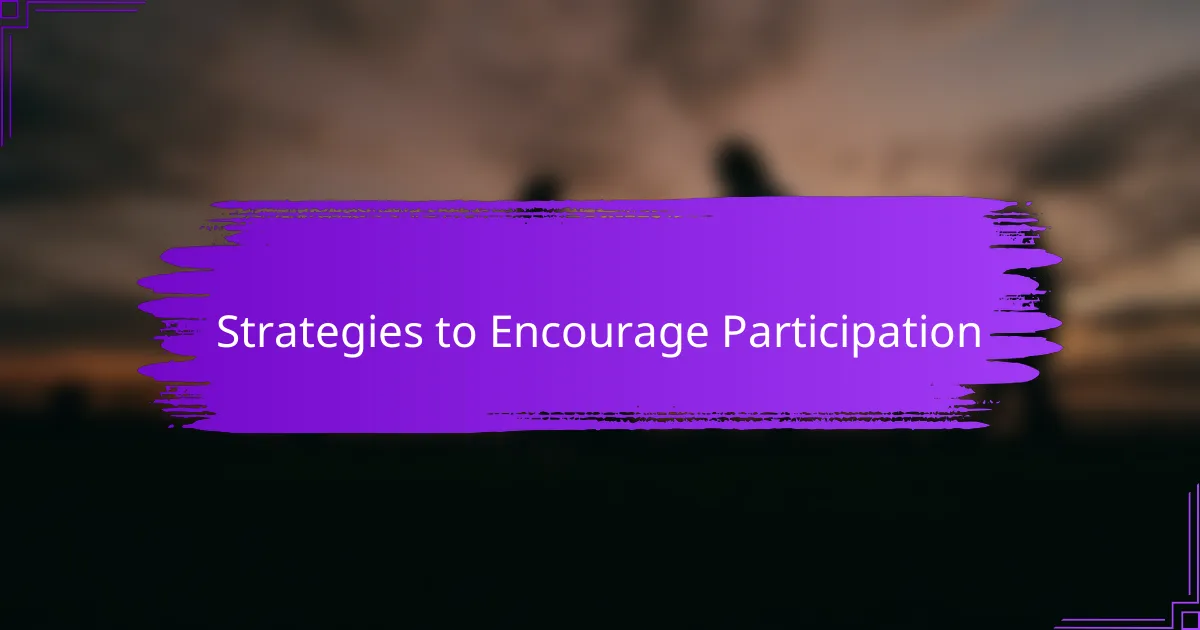
Strategies to Encourage Participation
One strategy I’ve found effective is leading by example. When I actively participate—whether it’s attending events or sharing meaningful articles—my friends often ask why I’m so involved. That curiosity opens the door for genuine conversations about why participation matters.
I also make it a point to tap into what excites each person personally. Sometimes highlighting how their unique skills or passions can make a difference sparks their interest. Have you ever noticed how people light up when you show them how their contribution truly matters?
Another approach is creating small, low-pressure opportunities to join in. For example, inviting a friend to a casual meet-up or a volunteer day feels less intimidating than jumping straight into big rallies. These little steps build confidence and make involvement feel natural, not overwhelming.
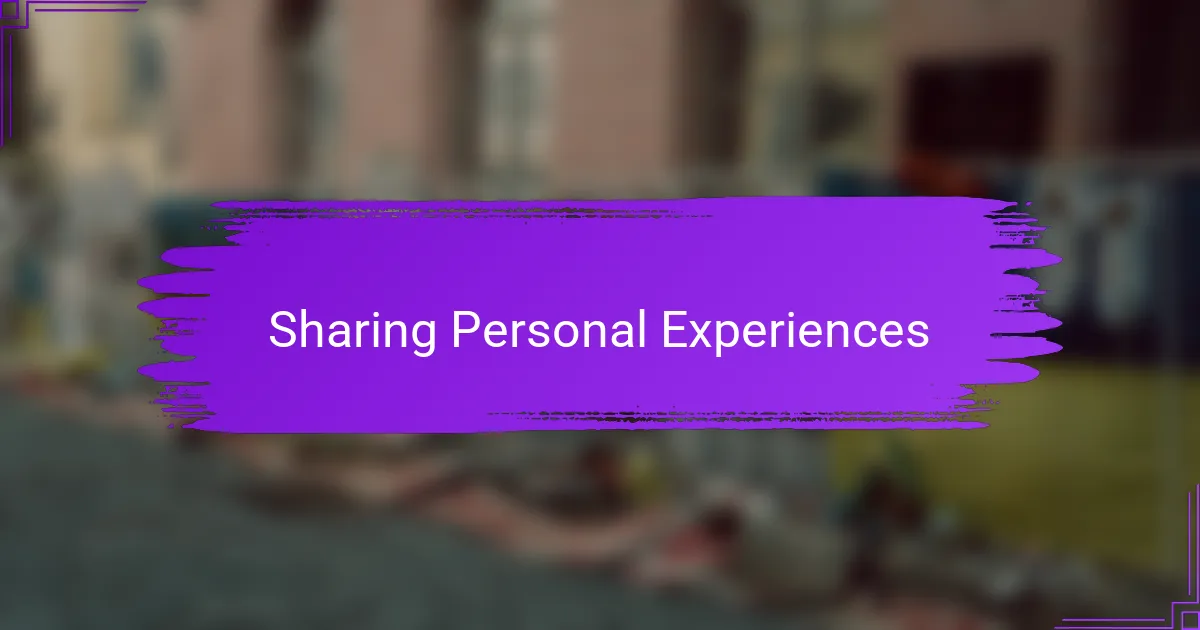
Sharing Personal Experiences
When I first shared my own story about volunteering during the last campaign, I noticed how it sparked curiosity among my friends. They started asking questions about why I felt so connected to the cause, and it felt like opening a door to deeper conversations. Have you ever experienced how a personal story can turn a casual chat into something meaningful?
I remember telling a friend about the moment I saw the impact of grassroots organizing firsthand—how a small neighborhood event inspired people to register to vote. That simple, honest account seemed to light a spark in her, making the idea of getting involved less abstract and more real. Sometimes it’s those genuine experiences that speak louder than facts or slogans.
What strikes me most about sharing personal experiences is the emotional connection it creates. It’s not just about politics; it’s about hopes, fears, and the belief that together, we can make a difference. When I open up about my journey, it invites others to reflect on their own values and consider joining the movement in a way that feels personal to them.
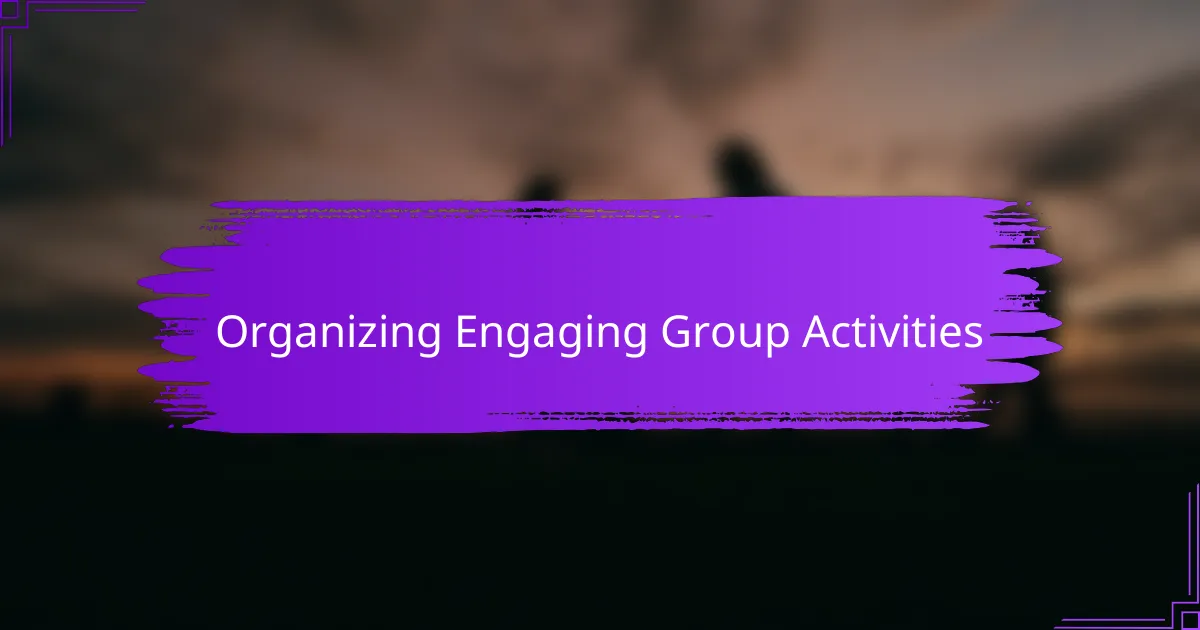
Organizing Engaging Group Activities
When I organize group activities, I always try to make them fun and interactive. For instance, hosting a casual watch party for one of Obama’s speeches created this incredible energy—everyone was engaged, asking questions, and sharing their thoughts. Have you ever noticed how a relaxed setting can turn even the shyest supporter into an active participant?
I’ve also found that mixing different types of activities keeps the group excited. We’ve done everything from community clean-ups to discussion circles, and each offers a unique way to connect with the cause and each other. It’s amazing how trying something new together can deepen bonds and inspire ongoing involvement.
What really makes a difference, in my experience, is giving everyone a role that suits their strengths or interests. When a friend who loves organizing took charge of event planning, their enthusiasm was contagious—it made the whole group feel more motivated and cohesive. Doesn’t tapping into personal talents make teamwork feel more meaningful?
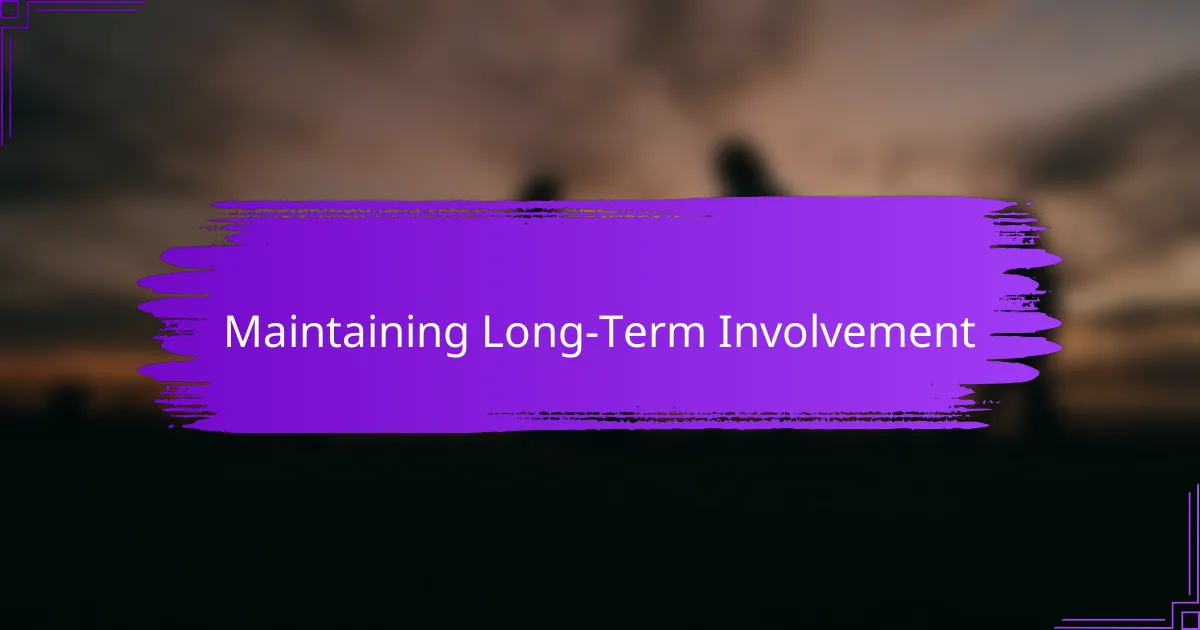
Maintaining Long-Term Involvement
Keeping momentum over the long haul can be challenging, but I’ve learned that regular check-ins make a big difference. Just a quick message or call to see how my friends are doing with their involvement reminds them—and me—that we’re in this together. Have you ever noticed how a little nudge can reignite your enthusiasm just when it’s waning?
Another thing that’s helped me is celebrating the small wins. Whether it’s someone registering a new voter or simply showing up at an event, acknowledging those moments keeps the spirit alive. It makes the cause feel less distant and more personal, turning ongoing participation into something rewarding.
Finally, I try to keep things flexible and open—no pressure, just encouragement. Life gets busy, and I’ve seen that when people feel supported rather than obligated, their commitment lasts longer. Doesn’t that kind of patience build a stronger, more sustainable community?
